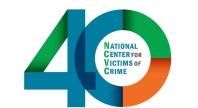Effects of CSA on the Victim
Effects of Child Sexual Abuse on Victims
For victims, the effects of child sexual abuse can be devastating. Victims may feel significant distress and display a wide range of psychological symptoms, both short- and long-term. They may feel powerless, ashamed, and distrustful of others. The abuse may disrupt victims development and increase the likelihood that they will experience other sexual assaults in the future.
In the short-term (up to two years), victims may exhibit regressive behaviors (e.g., thumb-sucking and bed-wetting in younger children), sleep disturbances, eating problems, behavior and/or performance problems at school, and unwillingness to participate in school or social activities (page 4).
Longer-term effects may be wide-ranging, to include anxiety-related, self-destructive behaviors such as alcoholism or drug abuse, anxiety attacks, and insomnia (page 4).
Victims may show fear and anxiety in response to people who share characteristics of the abuser, i.e., the same sex as the abuser or similar physical characteristics. Victims may experience difficulties in adult relationships and adult sexual functioning (page 4).
Survivors may feel anger at the abuser, at adults who failed to protect them, and at themselves for not having been able to stop the abuse (page 1).
Victims may experience traumatic sexualization, or the shaping of their sexuality in “developmentally inappropriate” and “interpersonally dysfunctional” ways (page 2).
Victims may feel betrayed and an inability to trust adults because someone they depended on has caused them great harm or failed to protect them (pages 2-3).
Victims may feel powerless because the abuse has repeatedly violated their body space and acted against their will through coercion and manipulation (page 3).
Abusers may cause victims to feel stigmatized (i.e., ashamed, bad, deviant) and responsible for the molestation (pages 3-4).
Victims of child sexual abuse have higher rates of revictimization (later sexual assaults) than non-victims (pages 131-132).
Some victims may appear to be free of the above symptoms (page 168).
A study conducted in 1986 found that 63% of women who had suffered sexual abuse by a family member also reported a rape or attempted rape after the age of 14. Recent studies in 2000, 2002, and 2005 have all concluded similar results (page 8).
Children who had an experience of rape or attempted rape in their adolescent years were 13.7 times more likely to experience rape or attempted rape in their first year of college (page 9).
Those with a prior history of sexual victimization are extremely likely to be re-victimized. Some research estimates an increased risk of over 1000%.
A child who is the victim of prolonged sexual abuse usually develops low self-esteem, a feeling of worthlessness and an abnormal or distorted view of sex. The child may become withdrawn and mistrustful of adults, and can become suicidal (page 1).

